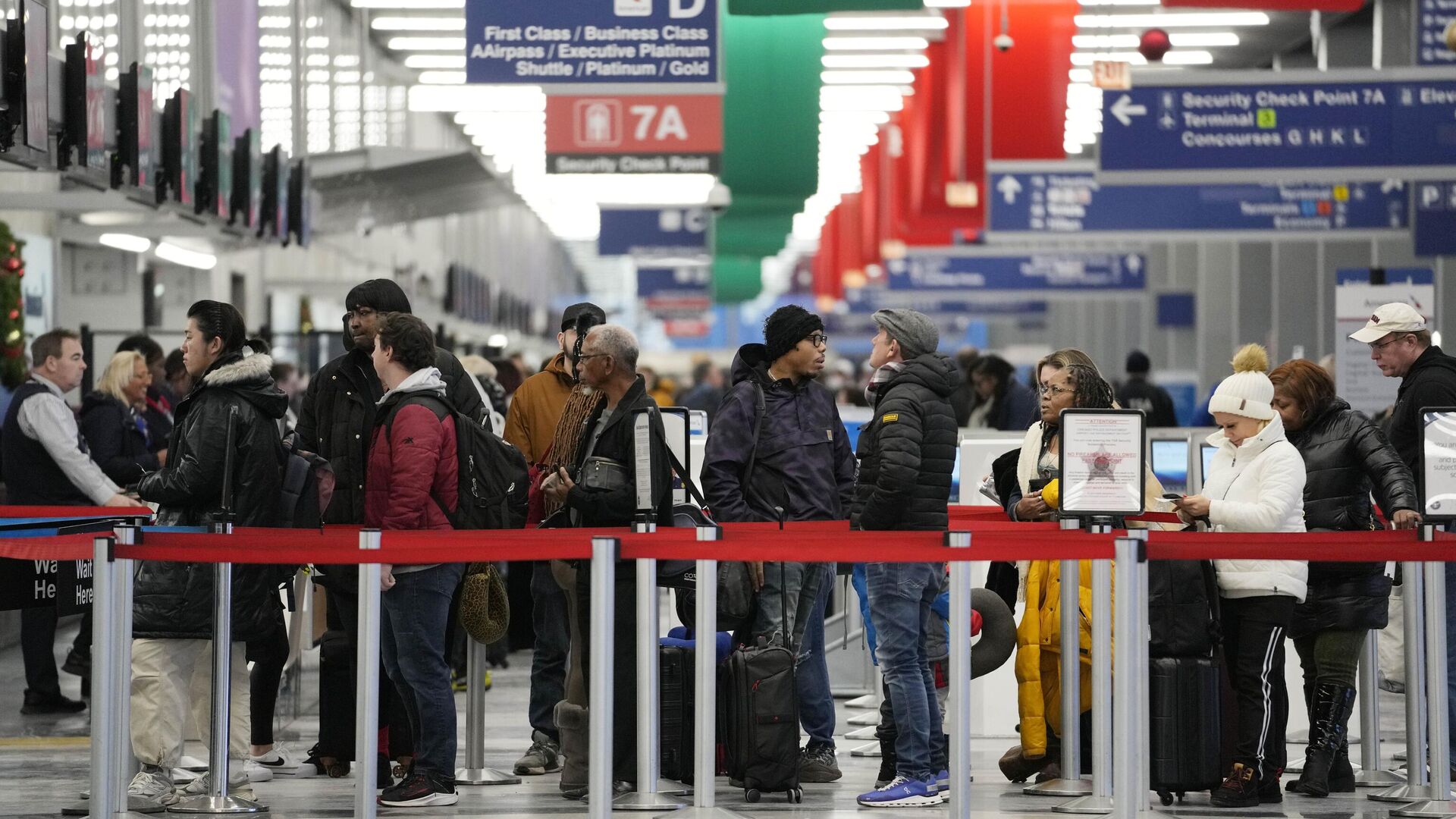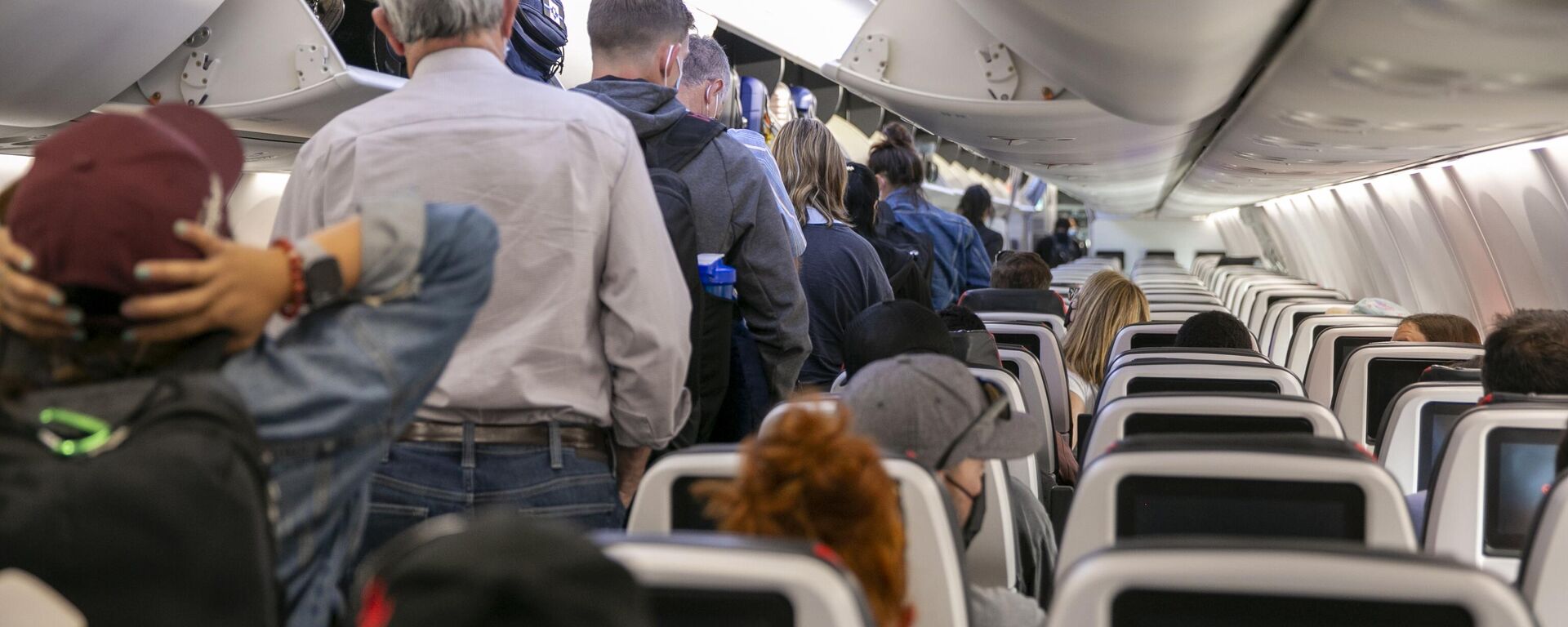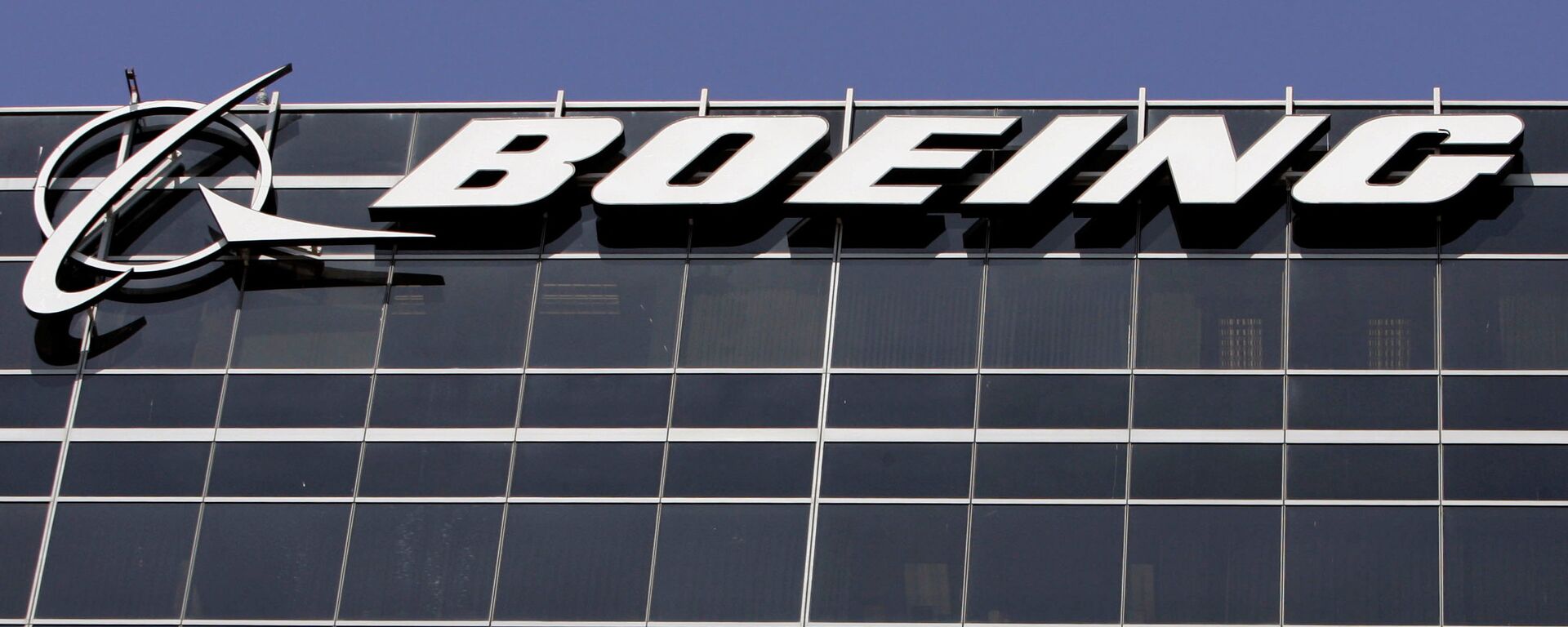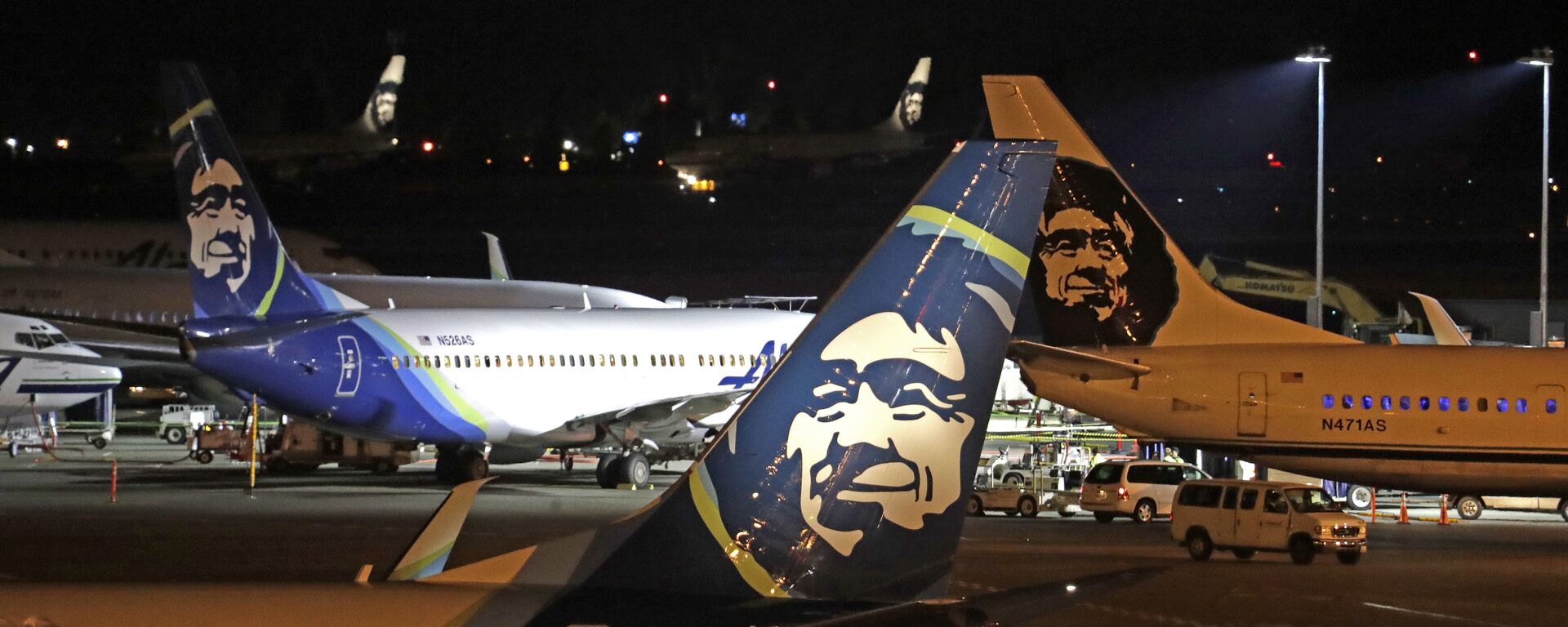‘Many Chances for Human Error’: Embarrassing Boeing Report Reveals Lack of Safety and Mistrust

© AP Photo / Nam Y. Huh
Subscribe
In response to the report, Boeing said that they have “taken steps to foster a safety culture that empowers and encourages all employees to share their voice” but added that there is “more work to do”.
The American aerospace company Boeing is facing renewed scrutiny after federal safety experts released an embarrassing report that found issues with Boeing’s safety culture. The report noted a “disconnect” at the company between senior management and frontline workers.
The report was written by a group of experts brought together a year ago by the US Congress—before the incident on January 5 when an Alaska Airlines 737 Max airliner's door panels blew off mid-flight. The Federal Aviation Administration said it would evaluate the reports findings while it is already auditing Boeing over the Alaska Airlines incident.
Jamie Finch, a former director at the National Transportation Safety Board, spoke with Sputnik’s Fault Lines on Wednesday. He believes the report is a step in the right direction, but admits it is “scary” that the situation with Boeing has gotten to this point.
“I would take it as a step in the right direction. It's scary that things have gotten to the point where they need to have something like this, but at the same time, at least they are moving forward and moving towards a solution,” Finch explained. “So I would take it as a positive.”
“It's not like these planes are in a position where, 'oh my gosh, they're going to be flying out of the sky left and right.' No, we're not anywhere even remotely close to something like that. But, there are some issues that have arisen over the last few years about Boeing, about the manufacturing process and about their aircraft, and that needs to be addressed," he added.
The report also found “hesitation in reporting safety concerns for fear of retaliation” because managers could investigate reports made under their watch, meaning the investigation isn’t fully impartial.
“Yes, we've seen this happen in all types of industries and companies and places around the world, around the country in businesses, and even organizations,” said Finch. “This is, obviously, a cultural problem that Boeing has developed over the last two or three decades. At least the two decades since it merged with McDonnell Douglas, or acquired McDonnell Douglas,” Finch added, referencing the 1997 merger between the American aerospace manufacturer McDonnell Douglas and Boeing.
“Since the FAA does not have the funds to be able to regulate or be there to oversee all of the reporting and incidences or situations that develop at the company or at the plants, they rely on Boeing to be self-reporting and when you have these self reporting situations, that's when the whistleblowers essentially go to blow the whistle on their boss, and their boss is the one who's reviewing this whistleblowing,” he continued.
“But, the FAA does not have the resources to be able to properly regulate and monitor these things. And, so, maybe we'll see more funding coming out of this, I don't know. I'm not a big fan of continuing to throw money at a problem. But let's see if there's a way that we can resolve this problem and this issue without it costing another arm and a leg, but at the same time getting to safety and reaching the goals of what we need. That's the number one priority, no matter how much it costs,” said Finch.
Sputnik’s Melik Abdul referenced an article in which Ed Pierson, a former Boeing senior manager, revealed there were issues with Boeing’s supply chain regarding their engines which resulted in a ripple effect down the supply line, resulting in work that was performed out-of-sequence by “hundreds of people” as well as quality control checks that weren’t being performed. The whistleblower said it was “so bad in 2018” and questioned “where the h***” the FAA was during that time.
“He is absolutely correct,” said Finch. “The sequence of these procedures in manufacturing, in building these products are very, very specifically designed by specifically trained engineers and ergonomic people on how to properly and safely put these products together, or these parts together for whatever you're making.”
“And if you have one hiccup on that, it just ripples down. It's a rippling effect, is the way I look at it. If you drop a pebble in the water, whether everything was smooth before, it's now just rippling through because it just carries on until it gets to the end. It just changes the entire dynamics of what the product was supposed to look like, and what the process was supposed to be to get to that end product,” he added. “There's so many chances for human error involved.”
“[The FAA] created this entire process of allowing Boeing to self-report and self-regulate on some of these things because the FAA just didn't have the resources to be able to do it themselves,” said Finch. “But this entire thing is going to be based on trust. Well, as we can see now, that's been broken and that can't be repaired, at least not for a long time.”
“Trust but verify, right? And that's just where we are, and I just don't want us to get into a situation where we're seeing people losing their lives, or more people losing their lives over something like this. That situation with Alaska Airlines could have been horrendously tragic.”
When asked if more funding or resources for the FAA could correct future problems such as these, Finch explained that the difference between the two bodies is financial.
“Here's the thing: you get the resources to the FAA. Well, the FAA is going to be competing for the same people that Boeing is going to be competing for to hire. Who do you think is going to win that money into battle?” Finch responded. “So that's a problem, that's a real problem that it takes somebody that is willing to forego a higher salary or higher money figures to say, 'oh, I want to do this work because I think it's very important work.' Just throwing money at it is not going to solve it.”
Before the recent Alaska Airlines incident, two deadly crashes involving a Max 8 killed a total of 346 people occurred between October 2019 and March of 2019. Since 2019, Boeing has made several changes to improve product safety, establishing an aerospace safety committee in August of that year as well as a chief aerospace safety office in January of 2021.
But Pierson, a whistleblower who retired from Boeing in 2018 before the deadly crashes, said that all Boeing does is “talk”, and that the leadership “doesn’t get down there and get involved with the people that are building the products.”
“They don’t value the engineers, they think the engineers are replaceable. You can’t take a 20- or 30-year employee and just dump them off to the side and think that you’re going to find somebody off the street that’s going to be able to do what that person does,” said Pierson. “Then they don’t have the support mechanisms and they’re tired and they’re fatigued and they’re working like dogs — they can make mistakes.”

29 December 2023, 00:37 GMT



